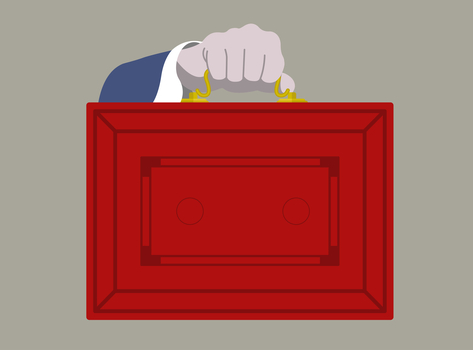UK Autumn Budget
The Chancellor of the Exchequer, Rachel Reeves MP, has delivered the UK Government’s 2025 Budget, which set out the Treasury’s plan of action for the coming year.
The headline announcement for landlords was that there will be a 2% increase in income tax rates levied on income from property from April 2027. However, with power to set income tax rates and bands (including on property income) in Scotland devolved to Holyrood, the changes to income tax announced in the UK budget will not apply to landlords residing in Scotland. Any changes to income tax rates and bands in Scotland will be announced in the Scottish budget which is scheduled for 13th January 2026. It is possible that the Scottish Government will replicate the 2% increase in income tax rates on property income, but we will have to wait until 13th January to hear if this is the case.
The 2% increase in income tax rates will also apply to income from savings and dividends, with the latter coming into force a year earlier from April 2026. Unlike the property tax increase, these increases will apply throughout the UK.
SAL believes that any increases in property tax will impact negatively on tenants as they will lead to inflationary pressure on rents and a reduction in investment in the sector. This is recognised by the Office for Budget Responsibility’s Economic and Fiscal Outlook which states: “The measures announced in this Budget reduce returns to private landlords, following various measures over the past 10 years that have also reduced returns. This successive eroding of private landlord returns will likely reduce the supply of rental property over the longer run. This risks a steady long-term rise in rents if demand outstrips supply.”
SAL chief executive, John Blackwood, commented: “Introducing a property income tax could be the final straw for many private landlords. The increased level of financial strain makes operating margins increasingly fragile for those investing in the private rented sector. With around 90 percent of landlords in Scotland owning just one or two properties, this might mean that being a landlord is no longer financially viable. While it might help to achieve the Chancellor’s aim in ensuring income on savings and assets are taxed fairly, if landlords choose to sell up, it will put the supply of much needed rented housing in jeopardy.
“This, combined with recent policy shifts, including impending rent controls introduced in the Housing (Scotland) Act, will put further pressure on landlords. The Scottish Government now needs to consider whether to follow suit and introduce similar tax changes in Scotland. However, such a move will prove equally unpopular with already nervous investors and no doubt further exacerbate Scotland’s housing emergency.
“Now, more than ever, the Scottish Government needs to work with landlords to keep them in the sector, rather than frightening them off with punitive tax hikes.”
With many potential changes to taxation floated in the run up to the budget, including proposals to levy National Insurance at 8% on property income and proposed increases to Capital Gains Tax, for some landlords there will be relief that the budget did not include more significant tax increases.
The SAL helpline doesn’t cover tax advice. If you require advice on how the budget announcements might impact you, then you should contact a tax adviser or an accountant such as EQ Accountants. You can read EQ Accountants budget summary here on their website.

